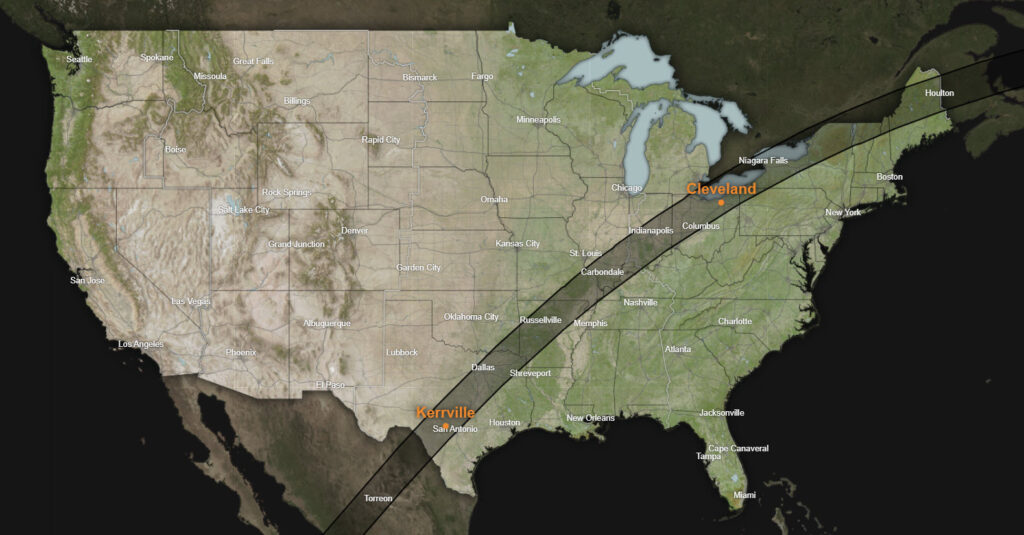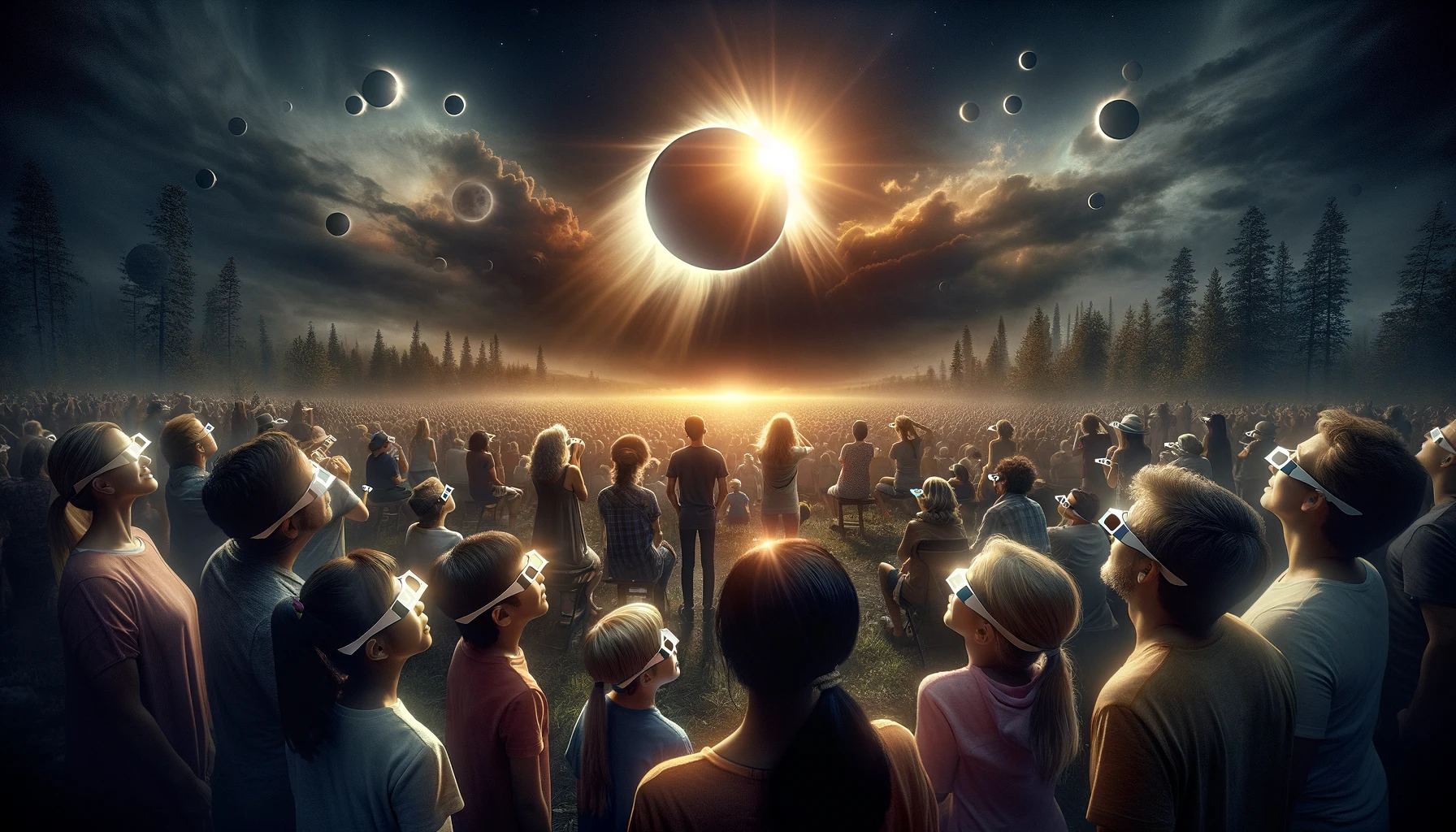Stargazers and science enthusiasts across North America rejoice! The “Great North American Eclipse,” a total solar eclipse, is casting its shadow on April 8th, 2024. This celestial spectacle promises to be an unforgettable experience, but be sure to mark your calendars and plan accordingly.
NASA prepared a web page dedicated to 2024 Solar Eclipse. You can see where the eclipse passes minute by minute using NASA Eclipse Explorer at: https://eclipse-explorer.smce.nasa.gov/
When and Where to Look Up
The total eclipse will begin at 16:38 UTC (Coordinated Universal Time) on April 8th. For those in the path of totality, which stretches from Mexico through the United States and into Canada, totality – the period when the moon completely covers the sun – will begin shortly after. The exact timing will vary depending on your location.
The path of totality cuts a narrow swathe across the continent, but a partial eclipse will be visible throughout much of North America. You can find detailed maps and specific times for your area with a quick web search for “2024 solar eclipse path.”

Witnessing Darkness in Daylight
The total eclipse itself will only be visible from the path of totality. Here, the sky will darken dramatically, as if dusk has suddenly descended. Stars may even become visible. This period of totality will only last for a few minutes, reaching a maximum of 4 minutes and 28 seconds in some locations.
What is a Solar Eclipse?
A solar eclipse occurs when the moon passes directly between the sun and Earth, casting a shadow on our planet. During a total eclipse, the moon completely blocks the sun’s bright face, revealing the sun’s tenuous atmosphere, the corona. This is a rare opportunity to observe this fascinating solar feature.
Safety First!
Solar eclipses are awe-inspiring events, but never look directly at the sun, even during a partial eclipse. The sun’s intense light can permanently damage your eyes. Special solar eclipse glasses are the only safe way to view the eclipse directly.













